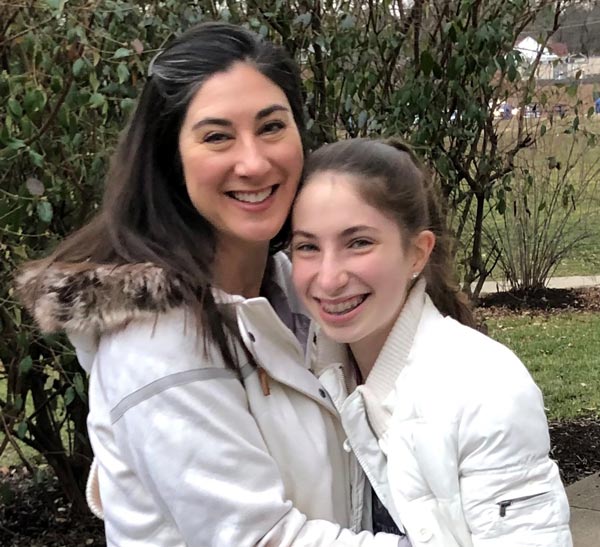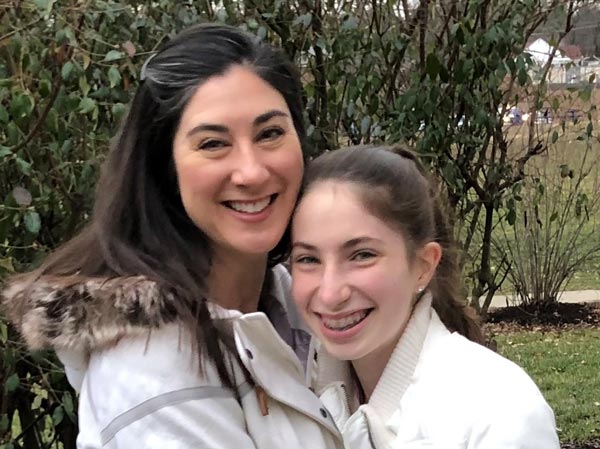
How is Springer Different? “One Family’s Story” Part 1
January 12, 2021
Treatment Guidelines for Children with ADHD
January 26, 2021A few weeks ago, I sat down with Maureen to discuss her family’s Springer Experience. In part 1, you might remember your introduction to Maureen and Ava. In our first blog, I concentrated on their story from pre-school to present day, where Ava is a thriving, confident 8th grader at Springer.
For part 2, the focus is going to shift to Maureen’s more personal emotions and insights into understanding that her daughter was struggling and growth in her understanding of what Ava needed to thrive in her elementary school years.
Part 2: Maureen responds to her experiences, in her words.
Naturally, the most common categories that schools and parents are happy to find their children in are “normal” or “gifted.” Finding your child in another category can be disconcerting or even shameful. We are socially conditioned to steer clear of shameful topics, so many people, including myself, noticed my daughter Ava’s reading struggles before one outlier found it useful to investigate why. When Ava’s perceptive and wise 1st grade teacher insisted on having her tested for learning disabilities, I froze in fear…
…because Ava's reading struggles were not new.
Ava is like me, and my mom and on down the genetic line. My mother came from an affluent background that allowed her parents to send her to a renowned private boarding school. On her graduation day the headmaster proudly told my mom that she had been an experiment. Her parents had “bent their arm” to accept her into their school. The school was proud of their accomplishments.
Like my mom, I too struggled in school. I was held back in first grade and couldn’t functionally read until fourth grade. My mom told me that I didn't talk until I was 4. My younger sister was chatting it up, but I was still mute. I have very clear memories of riding in the back of my parent's car pretending to read the passing signs. I remember my teacher telling me, angrily, that she was glad that I would not be in her class the following year. I was in her class the following year. I grew up not just thinking I might be stupid, but inherently knowing I was stupid. It was as much a part of me as having dark hair. However, because I switched schools often, this was a secret I got to keep to myself. By the time I hit Junior High, I was catching up to my peers. The kids I graduated High School with didn't know my shameful past - and that was just fine with me.
Dyslexia is so pervasively normalized as shameful, that even many good educators don’t realize the hurtful norms they’re perpetuating - when advising parents that dyslexia is not a professional term, denying knowledge of any dyslexic children previously attending their school or counseling parents that a dyslexic child’s reading deficiency is actually attention-related. After hearing such things, I came to understand that, if I cannot reasonably and professionally address a condition, and the school denies any experience or curiosity about it, there’s little chance that my daughter would flourish in their environment.
When Ava's struggles were brought to light, I was amazed to discover the amount of self-denial I was capable of, too. I was not immune to playing my part in perpetuating dyslexia’s stigmatizing norms. I sat, frozen in wait, secretly hoping that Ava would just fight through her struggles bravely, so I did not have to face my past – or worse, be outed as dyslexic too. Even though the thought of digging up my own long-lost memories was traumatic, I finally realized that my denial was not serving Ava well. I needed to help her in any way I could, even if embarrassing to do so. The resulting introspective journey was invaluable. I started advocating for my daughter. Thankfully, I eventually reached out to Springer.

A traumatic childhood education doesn’t have to be the backstory for every dyslexic child. Springer has proven that there are better alternatives. Discovering what you are good at and measuring your self-worth against these traits is immense. This is what Springer did for my daughter. I do not think this would have happened if we had stayed put in our top-rated school district. Springer changed my daughter’s view of herself - and it means everything.
As a bonus, my willingness to speak confidently and honestly about being dyslexic has given my daughter a role model of what a dyslexic adult can do with her life. I’m far from a shameful example of what it looks like to find yourself in the wrong category. Ava sees this and knows that she, too, has everything she needs to be successful in life. I recently asked her how she feels about her dyslexia. She responded that, yes, it can sometimes feel demeaning, but it’s not so bad, she knows that she’s smart.
I feel fortunate to have broken the chain of silence (and compliance) that this hereditary condition is often accompanied by. It was well worth it for Ava. If you read this story and it feels familiar, I wish you all the strength in the world to speak up and act for your child too.
If we had a crystal ball to show us just how incredible our world would be once we dispelled negative categories - realizing the inherent worth within each child - and taking care to groom each for their fullest potential, we’d be tripping over ourselves to make it happen sooner. I’m not sure when this transformation will happen, but until then there’s Springer!
Blogger and Director of Learning Programs, Carmen Mendoza, MEd, shares her expertise in understanding students with learning disabilities. If you have questions, please contact Carmen at .



